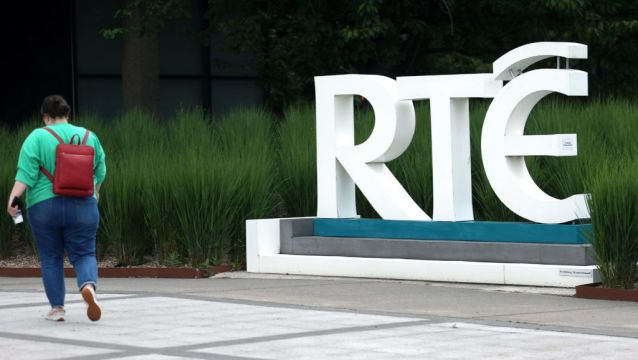“There's a real opportunity for a reset now to take a modern, progressive approach” to the funding of RTÉ, the chair of the Future of Media Commission, Professor Brian MacCraith has said.
Speaking on RTÉ radio’s Morning Ireland, Prof MacCraith said a decision on the future of the State broadcaster was now “unfortunately” critical.
“Recent circumstances have exacerbated the funding challenges. Certainly, there’s clear evidence on the license fee side, and potentially on the commercial side as well.
“The recommendations and the comprehensive analysis made by the Future of Media Commission are now even more important and really provide a clear blueprint of the options and a rationale for the particular recommendations given,” he said.
Although it was more than a year since the Commission had published its recommendations, Prof Mac Craith said he believed they were still relevant.
“The issues that have emerged from a governance perspective and so on, and the Government has made it clear that the actions they would take would be contingent on reforms of governance and so on, and I'm very confident that will happen
“But the actual basis of the recommendations, we did a very detailed analysis of all the options, costings and so on, compared to an international best practice. Those recommendations remain in terms of what we believe would be viable.”
Prof MacCraith said had been shocked at the recent revelations about the operational culture in RTÉ, stating there had not been any indication of such issues during the Commission’s dealings with RTÉ. He added that no one had any sense of what was going on.
Dual funding
“That issue did not form part of our concerns at that time. However, when we looked at the various options moving away from commercial, the hybrid model and moving to public funding only, we certainly ruled that out in terms of the scale of what would be involved.
“I think certainly the view very clearly articulated in the report is that the dual funding model is still the right model going forward, but I think clearly corrections have to be made on the commercial side in terms of operational culture that's in train.”
Prof MacCraith explained that the Commission looked at five options: “Commercial-only funding, public-only funding, they were ruled out for a range of reasons.
“We looked at reforming the license fee. It's not progressive, it's regressive, it's anachronistic, and the number of no TV households is now at over 13 per cent and increasing. The number of people qualifying for free licenses is increasing, mainly due to the ageing population. It's resulting in the Department of Social Protection providing €70 million in free licenses per year.”
Evasion rates for the licence fee were 50 per cent before the recent troubles, he noted.
“It's very poorly regarded by the public. We did surveys on this and they strongly indicated that the public would prefer a more fairness and a more progressive model.”
Prof MacCraith pointed out that 31 of the European Broadcasting Union countries use a taxation approach, of which there were a number of versions.
Norway model
“The one we suggested most strongly is what happens in Norway is that rather than actually tax individuals directly, that one takes it from the broader exchequer and which would come from income tax, corporation tax and so on, and then there would be a broader income tax adjustment to cover for that.
“That's a very significant approach that works extremely well in Norway and other countries that are adopting that as well, and it doesn't explicitly affect individuals directly. So if you look at it gets a more positive response from the general public, and it can be made progressive to deal with issues of a tax credit for pensioners.”
Safeguards were in place in countries like Norway and Finland which operated taxation funded public service broadcasting.
“They're put in place in terms of potential for political interference and the sort of approaches they used.
“There were maximum transparency of the estimation of funding requirements. Now they use a four-year multi-annual funding allocations. You take it out of the annual budgetary considerations, which is very important.
“You can use arm's length bodies to make the recommendations, and we have now got that arm's length body through the new Media Commission.
“I think that that can play a very important role if Government opt for this, but it works extremely well. It provides predictability of funding. It provides sustainable funding into the future,” Prof MacCraith said.







